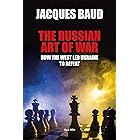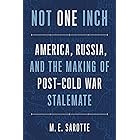| Digital List Price: | $17.99 |
| Kindle Price: | $11.99 Save $6.00 (33%) |
| Sold by: | Amazon.com Services LLC |
Your Memberships & Subscriptions

Download the free Kindle app and start reading Kindle books instantly on your smartphone, tablet, or computer - no Kindle device required.
Read instantly on your browser with Kindle for Web.
Using your mobile phone camera - scan the code below and download the Kindle app.

OK
Superpower Illusions: How Myths and False Ideologies Led America Astray—and How to Return to Reality Kindle Edition
“This persuasive, occasionally provocative book corrects a number of pervasive myths about the Cold War”—from the former U.S. ambassador to the USSR (Publishers Weekly).
In Superpower Illusions, Jack F. Matlock refutes the enduring idea that the United States forced the collapse of the Soviet Union by applying military and economic pressure—with wide-ranging implications for U.S. foreign policy. Matlock argues that Gorbachev, not Reagan, undermined Communist Party rule in the Soviet Union and that the Cold War ended in a negotiated settlement that benefited both sides. He posits that the end of the Cold War diminished rather than enhanced American power; with the removal of the Soviet threat, allies were less willing to accept American protection and leadership that seemed increasingly to ignore their interests.
Matlock shows how, during the Clinton and particularly the Bush-Cheney administrations, the belief that the United States had defeated the Soviet Union led to a conviction that it did not need allies, international organizations, or diplomacy, but could dominate and change the world by using its military power unilaterally. Superpower Illusions is “a truly remarkable book, both wise and provocative, telling a sad yet instructive story of how the United States failed to exploit a triumph in the Cold War to build a new international order reflecting U.S. interests and principles” (Dimitri Simes, President and CEO, The Center for the National Interest).
“A well written, clearly reasoned and thoroughly informed tour of the past half century of American diplomacy—including the roots of its successes and failures—led by a superbly qualified participant. A brilliant book.”—Sidney Drell, Stanford University
- LanguageEnglish
- PublisherYale University Press
- Publication dateJanuary 5, 2010
- File size2530 KB
Customers who bought this item also bought
Editorial Reviews
From Publishers Weekly
Copyright © Reed Business Information, a division of Reed Elsevier Inc. All rights reserved.
Review
“A well written, clearly reasoned and thoroughly informed tour of the past half century of American diplomacy—including the roots of its successes and failures—led by a superbly qualified participant. A brilliant book.”—Sidney Drell, Stanford University
(Sidney Drell)
"Few people had a better vantage point from which to observe the end of the Cold War than Ambassador Jack Matlock. . . . His biography alone makes this account of the end of the Cold War essential reading, but what makes it even more compelling is Matlock's thesis that America's latest foreign policy blunders can be traced all the way back to the end of the Cold War. . . . Since the myth of America's 'victory' over the Soviet Union in the Cold War remains an article of faith for many, it is especially valuable that one of its chief protagonists has now so painstakingly dismantled it."—Nicolai N. Petro, The Russian Review (Nicolai N. Petro The Russian Review 2010-09-01)
“A major contribution to our understanding of how American readings of the course of the Cold War . . . have influenced American foreign policy since 1993. Matlock shows in convincing detail why these readings are fundamentally wrong and, in a reasoned argumentative voice, dangerous for the national interests of the United States.”—Allen Lynch, University of Virginia
(Allen Lynch)
"A truly remarkable book, both wise and provocative, telling a sad yet instructive story of how the United States failed to exploit a triumph in the Cold War to build a new international order reflecting U.S. interests and principles."— Dimitri Simes, President, The Nixon Center
(Dimitri Simes)
"Avoiding partisanship and personal agenda, Matlock uses his experience as a seasoned diplomat to deliver a powerful critique of US foreign policy over the last 30 years. Superpower Illusions is at times scathing, always insightful, and long overdue."—Susan Eisenhower, author of Partners in Space: US-Russian Cooperation after the Cold War
(Susan Eisenhower)
“This book is as close as we may come to understanding the distortions ideology played in misunderstanding the Cold War and in applying those distortions thereafter. This is an extraordinary work which should become a standard reference for practitioners, scholars, and concerned citizens for decades to come.”—Gary Hart, Former United States Senator (Ret.), Co-chair, Commission on U.S.-Russian Relations
(Gary Hart)
About the Author
Product details
- ASIN : B00492CRVU
- Publisher : Yale University Press (January 5, 2010)
- Publication date : January 5, 2010
- Language : English
- File size : 2530 KB
- Text-to-Speech : Enabled
- Screen Reader : Supported
- Enhanced typesetting : Enabled
- X-Ray : Not Enabled
- Word Wise : Enabled
- Sticky notes : On Kindle Scribe
- Print length : 458 pages
- Best Sellers Rank: #246,456 in Kindle Store (See Top 100 in Kindle Store)
- #117 in International Relations (Kindle Store)
- #121 in 21st Century History of the U.S.
- #147 in International Diplomacy (Books)
- Customer Reviews:
About the author

Discover more of the author’s books, see similar authors, read author blogs and more
Customer reviews
Customer Reviews, including Product Star Ratings help customers to learn more about the product and decide whether it is the right product for them.
To calculate the overall star rating and percentage breakdown by star, we don’t use a simple average. Instead, our system considers things like how recent a review is and if the reviewer bought the item on Amazon. It also analyzed reviews to verify trustworthiness.
Learn more how customers reviews work on Amazon-
Top reviews
Top reviews from the United States
There was a problem filtering reviews right now. Please try again later.
His optimism over incoming President Obama's new approach to American diplomacy has sadly proven to be unfounded. But this is a very powerful and thought-provoking look at the direction of American policy and its sad mistakes in the years since the administration of President George Bush. Anyone seeking a different view of how American should direct its foreign policy should read this book.










